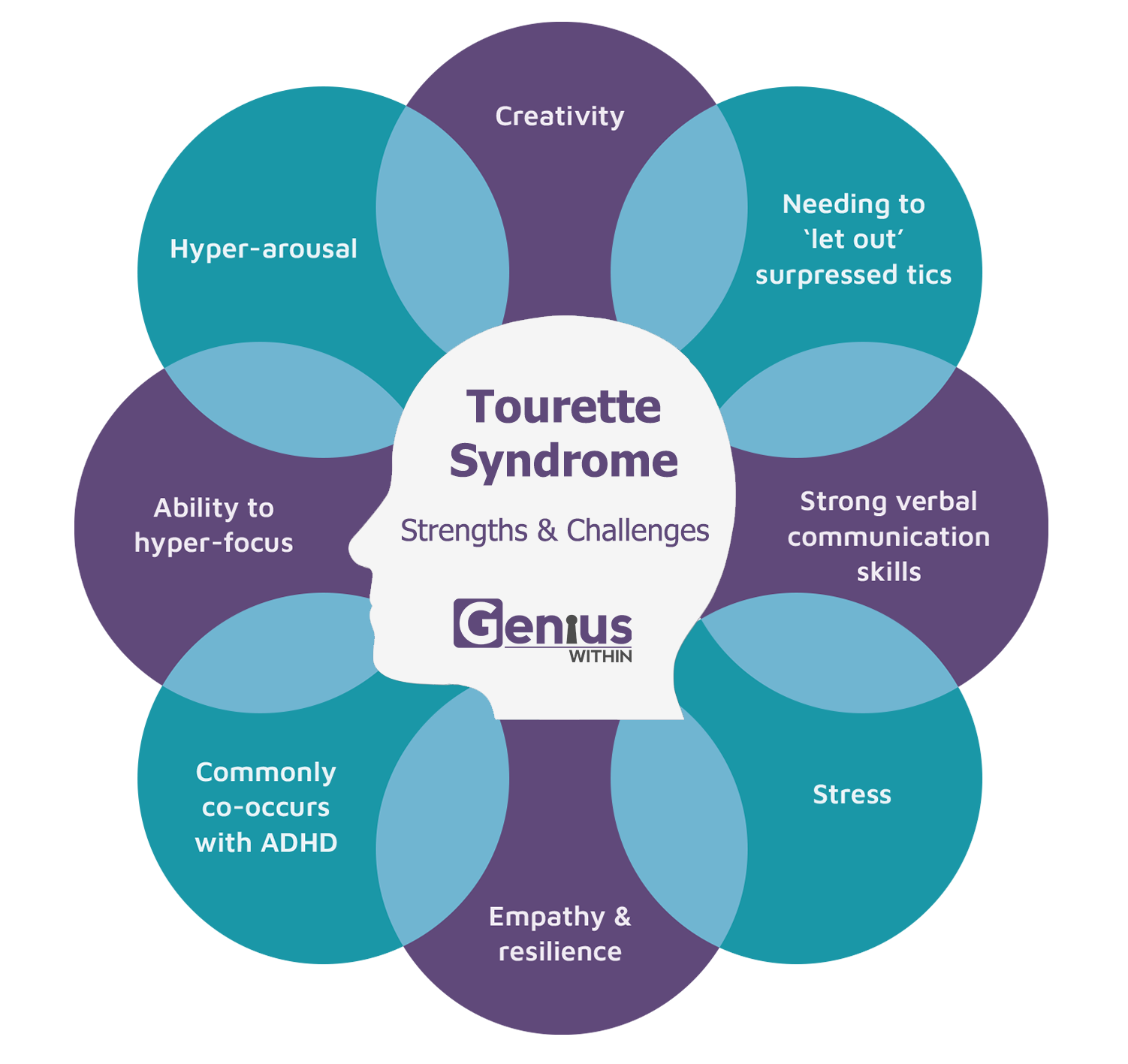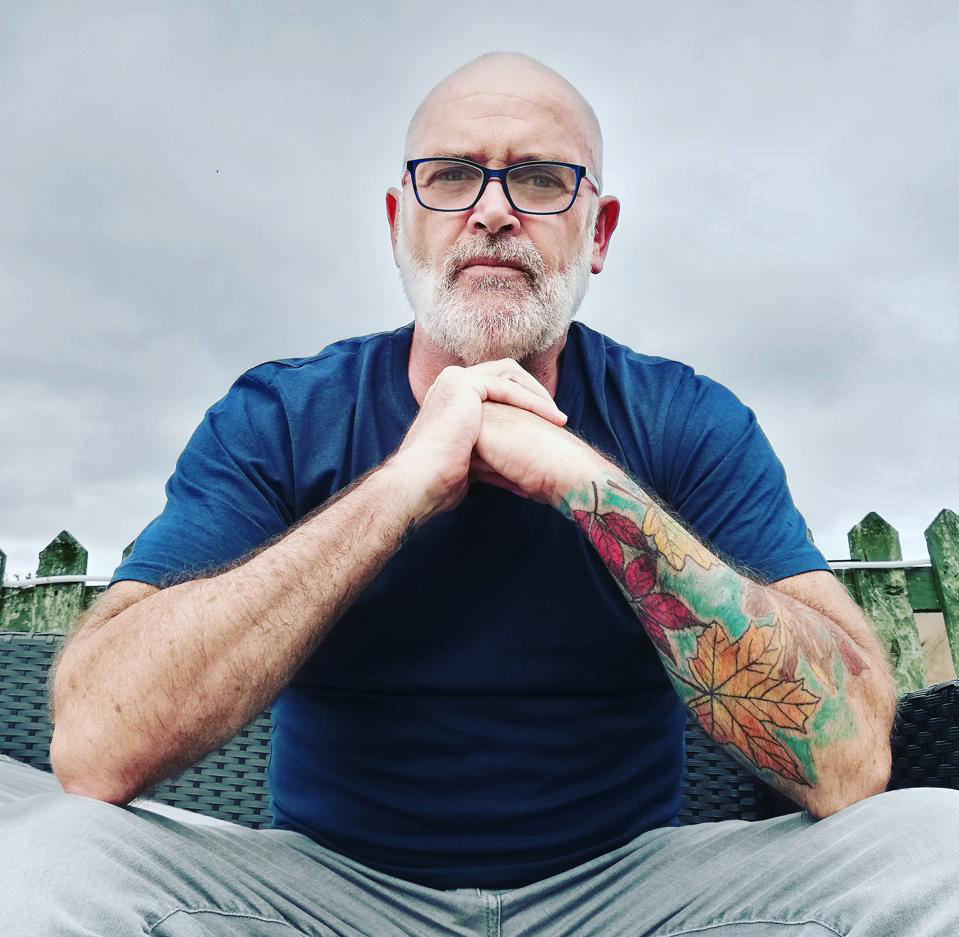What is Tourette Syndrome?
Tourette Syndrome (TS) is a neurological condition characterised by involuntary movements and sounds known as tics. These tics can be motor (e.g. blinking, shoulder shrugging) or vocal (e.g. throat clearing, grunting). While tics are the hallmark of TS, the condition is often misunderstood.
Different for everyone
A common misconception is that everyone with TS displays severe tics or involuntarily swears (a symptom known as coprolalia). In reality, coprolalia affects only around 10% of people with TS. Many individuals have subtler tics that may go unnoticed.

Beyond the Tics: Embracing Strengths of Individuals with Tourette Syndrome
At Genius Within, we recognise that individuals with TS often possess remarkable qualities, including:
· Strong verbal skills
· Tenacity and resilience
· Creativity and innovation
· Empathy and emotional intelligence
· Hyperfocus and attention to detail
Our approach focuses on amplifying these strengths while providing support to navigate the challenges TS can bring.
Co-occurring Conditions
TS often coexists with other neurodivergent conditions, such as:
- Attention Deficit Hyperactivity Disorder (ADHD)
- Obsessive-Compulsive Disorder (OCD)
- Sensory Processing Differences
- Understanding and addressing these co-occurring conditions is key to providing holistic support.
Support Strategies
Our clients with Tourette Syndrome most commonly seek support in areas such as:
- Memory enhancement
- Concentration
- Organisational skills
- Time management
- Effective verbal communication
- Motor Control
Everyone we work with has a bespoke plan that best matches their needs, this may include strategies on the above areas or it might include other areas where they feel they need more support to work at their best.
A lived experience perspective
“I spent much of my life thinking there was something wrong with me. But getting a diagnosis helped me realise I wasn’t broken — I was misunderstood. It didn’t fix everything, but it gave me clarity, a sense of community, and the language to ask for what I need. Working to my strengths and securing support for the challenges that Tourette Syndrome brings has put me back on the right trajectory.”
Paul Stevenson, Genius Within Ambassador
Changing the Narrative
- There is ongoing discussion about renaming Tourette Syndrome to terms like ‘Tic Disorder’ in an effort to reduce stigma. However, we believe that education, visibility, and sharing real stories are far more effective in challenging prejudice than simply changing terminology.
Resources and Next Steps
- If you or someone you know is affected by TS:
- Visit your nearest Tourette Syndrome association for practical resources.
- Explore our coaching and support services tailored for individuals with TS.
- Read more about Paul Stevenson’s journey and insights into living with TS.
Funding Options You Can Explore
You may be able to get funding through the Access to Work scheme. If you have funding, you can come straight to us, no matter who is recommended on the referral – it’s your choice! We are approved suppliers UK wide.
Interview with Paul Stevenson: Lived Experience of Tourette Syndrome

Do you think people really understand the physical impact of neurodivergent or neurological conditions on people?
A lot of opinions are shaped by first impressions—what people can see and perceive. While we’ve made some progress, many neurological conditions are still “invisible” disabilities. That invisibility often leads to a lack of understanding around the daily struggles we face. What’s unseen is too often misunderstood or dismissed.
How can we improve understanding of Tourette Syndrome and break the misconception that it’s comedic?
A2:
We need to look beyond the tics and see the whole person. Forget the media portrayal that frames TS as some kind of joke. Not everyone with Tourette’s has coprolalia—the swearing tic—and even those who do deserve to be seen as more than just that. Awareness should come from real stories, not punchlines.
The additional effort required to do day-to-day things with a hidden condition can be exhausting. How do you manage your energy and recharge?
Living with both motor and vocal tics is physically draining. On top of that, being out in public and dealing with the anxiety, the stares, the unwanted attention—it all adds up. I call it “payback time”—the crash that comes afterwards when I need to rest and recover.
Suppressing tics takes intense effort and focus, and that’s exhausting in its own right. What helps me is finding creative outlets where I feel soothed. Photography, for instance, gives me that respite—my tics don’t vanish, but they quiet down. Creativity offers a kind of relief that medicine sometimes can’t.
While disability presents challenges, it also builds powerful problem-solving skills. What are your strengths and talents?
In the past I have often refered to them as my strengths—or jokingly, my “spidey senses.” I’ve developed strong observational skills, hazard perception, and a memory that picks up on things even when I’m not consciously focused. I’ve got lightning-fast reflexes, too. The funny thing is, I lived with all these traits for years without recognising them as strengths—until I went through a strengths-based assessment with Genius Within. That process helped me reframe how I see myself.
How can employers support people with Tourette Syndrome in the workplace?
Support starts with understanding. Empowering the individual to understand their own condition is key. Once they have that insight, employers can work with them to identify reasonable adjustments—whether that’s flexibility around hours, time out for treatment or recovery, or even just access to quiet spaces.
Team-wide awareness training is also vital. When managers and co-workers understand TS, it creates a more inclusive environment where people don’t feel they have to hide. It’s not about special treatment—it’s about removing the barriers that get in the way of doing the job.
